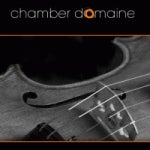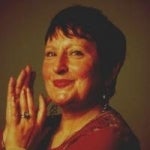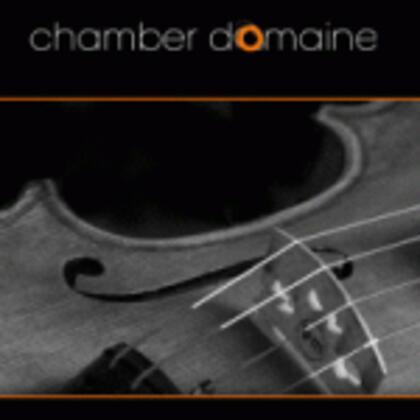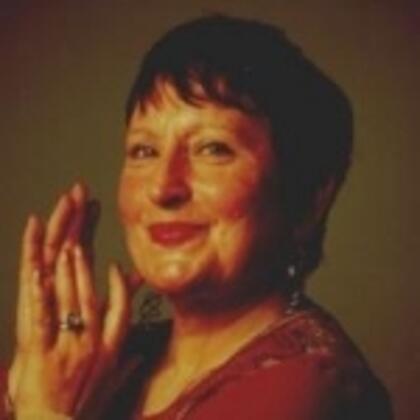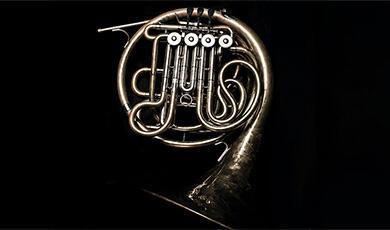The Avant Garde
Share
- Details
- Transcript
- Audio
- Downloads
- Extra Reading
Prior to the performance of contemporary British avant garde music, one of Britain's leading composers, David Horne, gave a talk. This included an interview with Jane Manning, who is at the forefront of British contemporary music. Pieces performed: Nicola LeFanu - But stars remaining, for Soprano David Horne - Refrain, for piano Judith Weir - King Harald's Saga, for Soprano George Benjamin - Flight, for flute Piers Hellawell - Basho, for piano Matthew Sergeant - Convenient Approximations, for viola (World Premiere) John Woolrich - Sad Song, for flute and piano Brian Elias - Peroration, for Soprano Performers: Jane Manning, OBE - Soprano David Horne - Piano Matthew Jones - Viola Anna Wolstenholme - Flute Part of the Made in Britain series of four lectures exploring British instrumental chamber music and song ranging from Bliss through to the music of today, giving a rare opportunity to experience chamber music in an intimate setting. Each concert will be preceded by a talk on the music performed.
Download Transcript
THE AVANT GARDE
Chamber Domaine
David Horne (DH)
Many of you will have been at Chamber Domaine's last lecture recital here, where they focused very much on some really great English music from the first part of the 20th Century. In contrast, what you are going to hear, in the next ninety minutes, is hopefully going to be some really great music from the latter part of the 20th Century and the start of the 21st. In fact, as you can see on your programme, one of the pieces we are going to hear tonight is going to be a world premiere, so that is a great thing to add to the concert.
In this short period of time I really cannot do justice to the state of modern British music. I think that it has become increasingly and wonderfully diverse, and I hope that our small selection of pieces for tonight's concert is going to help reflect that. Most of the pieces are going to be solo pieces and in particular we are going to focus quite a lot on pieces for the solo voice, which brings us to our star guest for the evening, who is Jane Manning.
Jane Manning, for a composer such as myself and for many other British composers, in many respects epitomises the ideal modern singer. This is a singer who has a breadth of knowledge, who is just as comfortable singing Bach or Mozart as she is Ferneyhough. She has had a lifelong commitment to the commissioning of music, and not just famous composers but actually commissioning composers at the beginning of their careers. In fact, some of the music you will hear Jane sing tonight, she commissioned from composers when they were still in their twenties. So I would love for you to give a warm welcome to Jane Manning OBE.
Jane Manning (JM)
Hello. Thank you very much for you kind introduction.
DH
What I would like to ask you about first is what was it about new music that first took your attention? Why did you want to sing it?
JM
I think I fell into it quite by chance really because I wasn't very curious at that time. I came from Norfolk, and I had a very traditional background in oratorio and Gilbert & Sullivan. I went through the Royal Academy of Music for four years and came out the other end, without really knowing anything about Webern or Schoenberg or anyone. I'd heard the name Schoenberg and had been told he was this completely mad person who had invented this terrible system which was going to destroy music, etc. But I didn't know anything about it - I was hopeless. I had taken part in a Brittan piece when I was a schoolgirl, and I'd sung some Walton songs while at the Academy, but that was it really. But then I went to Dartington for my holidays after my first year, when I'd finished at the Academy and I met some people who put some Webern songs in front of me. I didn't know about such music but I was most intrigued. I had not met atonal music or anything like that, so I was utterly intrigued and exhilarated. After that these people pushed me in this direction and they wouldn't let go of me. They made me audition for the Park Lane Group, and it just led on from there. Then I got to meet composers, which was another thing, because you feel so involved with the composer when you sing their work. It is a responsibility.
DH
And young composers as well, of course.
JM
Yes, young and old. Although the first composer whose work I did was Elisabeth Lutyens, which was in her 60th birthday year. That was a very important time for me because that particular piece was very successful, the Valley of Hatsu-Se, and it led to lots more performances for the BBC. The person in charge of Dartington at that time was of course Sir William Block, who was at the BBC, so that was a priceless connection and I also made many connections through it to people at the forefront of the new music world, which I knew nothing about, but they just pitchforked me into really. Then I did the Park Lane Group audition, which was successful, and Susan Bradshaw, who was my earliest mentor, was the pianist then. She encouraged me tremendously, and she chose for me the other works I did, which were works that I still sing.
DH
You have a very wide repertoire in that you will sing Bach and Mozart, but also far more avant garde and contemporary pieces. What is very interesting about your contemporary repertoire is how wide-ranging that is. In other words, you are not a singer who wants to specialise only in a particular branch of new music.
JM
No. It makes me very sad that there are these little rival camps in contemporary music now. There is a lot of polarisation I think, with a lot of people sort of stabbing each other in the back and forming their little factions. I won't go along with that. I think that, as a performer, you want to range much more widely and be more sympathetic to everybody, and I also think that this is healthy in this country. On this I think it is perhaps worth saying that that sort of thing is not too bad in this country, or in America, where I think it doesn't matter even if composers write in a conservative style if it's very good music. It doesn't matter what year things were written: when everyone's dead and gone, it only matters whether it's good music or not.
DH
I think you are absolutely correct on that point: in this country we are in a very good position, because British music is so wide in its range. It would seem a pity to me if you wanted just to choose one particular avenue.
JM
Yes. I think we have composers who sort of people at Darmstadt would laugh about; well, you know, who has the last laugh really. I think we're much more wide with our range of sympathies in this country, and I still think that there is a lot of wonderful music being written in tonal ways, although, of course, I'm very sympathetic to much more avant garde and experimental things. Although, having said that, nothing's very new really; it comes round full circle. I've had such a long career that the pieces I now do are not a million miles away from the pieces I began doing in the 1960s.
DH
That is another unique thing that you have. One of the first times I heard you live, I was a teenager, and you had come up to Edinburgh to perform Brian Ferneyhough's Etude Transcendental, which is a phenomenally hard piece, and I just remember being blown away. I really got the impression that here was a singer who could do anything. I think that is an important thing, because I think you have always had a reputation as a singer who really was willing to try anything. Has that had an effect on the kinds of compositions that composers have created specially for you?
JM
I don't know. I think the problem about personal vehicles can be that it is a sort of personal ego trip where someone writes so incredibly difficult and virtuosic no one else can do it. They give you a nice sort of frisson doing that. The three pieces I'm doing tonight were all written for me by composers who remain dear friends and whom I knew when they were very young, and I'm happy to say that they have all gone into other people's repertoire as well, especially the Weir piece, which is really a classic of its kind. It has been done by everybody, everyone's enjoying it, and I think that is the main point. With the Ferneyhough, I haven't done it a great deal. That was musically very complex. I have to say that it wasn't vocally, but of course often the two coincide because if you're struggling with musical difficulties, then you're not perhaps using your voice very well, so you have to be very careful about the technical aspect. But I have to say that it was incredibly well-written vocally, although no one would ever believe it from looking at it because the musical idiom was so complex.
DH
It might seem like a silly question, but obviously you do have perfect pitch - do you feel that this is something that helps you in singing strange new music?
JM
I suppose it gets you to the stage of polishing things quicker. I think that's what happens and you're not going to make too many mistakes while learning it. You get the pitches right and then you can concentrate on polishing other things and have more time for that, but I certainly don't go around sight reading. It wouldn't be the thing at all. I can sight read, but sight reading is not a performance, as we all know - there is something much more. But I suppose it has been an advantage in that at least you know where you're aiming for. It doesn't mean I never sing wrong notes, but the thing is that I tend to be aware when I've done it. This is very helpful as it's often a difficult thing not to as you can often overshoot and think, 'Whoops, that's wrong!'
DH
Is the composer aware that you have done it?
JM
Yes, certainly sometimes. I don't think I go wrong so much in performances, but when I'm learning something, I can easily overshoot because it is a technical thing of finding it in your voice. It is like boys with breaking voices - can hear what they want to do, but being able to do it technically is another thing. It is a matter of actually having your voice under your control. I have always said about things like interpretation that it is all largely a matter of technique. Technique is such a big thing, which is why I've worked terribly hard on it. It's no good having all the ideas in the world, but if you can't put them into practice, no one will know you even have them. It's the idea about dynamics and things like that; to be able to do a wide range of dynamics. You have an idea about doing a subtle and beautiful pianissimo, and if your voice won't do it, then no one will know you had that idea and it won't come off. In the end, it has got to come off. It may sound terribly cold-blooded and technical, but you do have to be well-prepared.
DH
On the subject of technique, it might seem a broad question, and maybe a difficult one to answer, but when we were been chatting before this, you mentioned that so many different kinds of vocal techniques had already been explored by the 1950s and 1960s, so my question for you is whether there are any particular trends in vocal writing among composers today, or do you think it's as wide open as the style?
JM
I still think it is very wide open. People have got quite a lot of experience; people tend to be thrown into the limelight quicker, and the opportunities are there. There is a young woman whose work I premiered very recently and it's like turning full circle, because the stuff she is writing is incredibly experimental and virtuosic, but I did do these kind of things in the 1960s as well. Although, she writes in a straightforward idiom also; she writes beautiful lyrical lines as well, but she can really turn on incredible effects and things like that. Of course, notation is one of the problems - you have to be so clear about what you want. Often it's very depressing if you get one of those scores which have a huge glossary and you have to look up every single symbol and everything single mark. It really drives you absolutely nuts. Of course the effect on the listener is neither here nor there and they won't know what that symbol looks like. But this composer has been marvellous.
DH
Is this something that you've often worked with composers on?
JM
Yes. I've worked with composers while they have been writing for me. This girl, whose name is Joanna Leigh - she's 26, and hers is a name to look out for - she wrote a whole second movement which was a rap. I had done two pieces of hers before, so this time she went even further and I had to really go for it. In the end it took me weeks and weeks to get through these strange and wonderful sounds and rhythms. It was composed of uneven rhythms where none of the bars are the same length. And because they are all different, there is no pattern you can keep repeating. It ended up being incredibly difficult, but extraordinarily fun. When this second movement was performed, it really brought the house down.
DH
It sounds like fascinating music, but it also perhaps belongs to a certain kind of line; a tradition including people like Ligeti, with pieces like the Nouvelle Aventures.
JM
Oh yes, that's right. Actually, that was the piece I did, oddly enough, just two weeks before I did this. I had recorded Nouvelle Aventure and Aventure with Boulez and they are tremendous fun to do.
DH
Just on the subject of recordings, several of the pieces you are going to perform tonight are on disc, and you have got some discs with you, I believe.
JM
Well, one of these pieces is on a disc of mine: Brian Elias' Peroration. It is quite a spectacular piece, and that in fact is on a disc called Jane Manning, which is a sample of lots of works that people have written for me by lots of different people. There's a tiny piece by Judith Weir on it, and all sorts of different people, including this Brian Elias Peroration. Judith Weir was going to come this evening, but unfortunately she has been detained elsewhere. Also, the other record I have here is Pierrot Lunaire, which some of you may remember I did here at Gresham College some time ago, and this is my earliest recording of it, made in 1967. It is a real vintage recording. It is its first time out on commercial release, because Susan Bradshaw, my earlier mentor, paid for it to be done and then did nothing about it, and rather touchingly, just before she died three years ago, it was issued, so it was marvellous really.
DH
Obviously you have sung a huge range of repertoire in different mediums, including opera, art song, chamber and orchestral. One impression I had, maybe from the time spent in the States, is that there is maybe less traditional art song in the UK than there used to be. Is this an impression you have, or is it just that it's maybe not performed as much?
JM
I'm not sure, because a few years ago I did a couple of books, New Vocal Repertory for OUP and I selected one or two special things that I thought I could recommend to people to do, and I did detailed analyses of each. For the first volume I had tremendous difficulty in finding works for voice and piano, because people weren't writing for piano at that time. They thought it was this old-fashioned, 19th Century, romantic instrument, and they didn't do it. But since about the 1970's, people have been doing it. Then, when I got to the next volume, many more people were writing with piano. Then, rather annoyingly, after I'd finished it, lots more interesting composers suddenly wrote song cycles for voice and piano. I think it's slightly coming back, but of course there is the question of voice with instruments as well, which is a very popular combination. It is that classic Pierrot combination of two strings, two wind, and piano, which is a nice thing. Actually, Schoenberg himself always felt that he belonged to the tradition of Brahms and everything else, and we can certainly see that, particularly Das Buch der Hängenden Gärten, the Op. 15 cycle, which I love to do. It's a classic, beautiful Lieder cycle, and people don't realise that. But art song as such, I suppose isn't called 'art song' anymore.
DH
And as a performer of composures such as Schoenberg, do you feel that it is important for you as a singer to be in touch with the repertoire that this new repertoire has come from, in order to understand it?
JM
Yes. I think there are an awful lot of pieces that could not possibly have been written without Pierrot Lunaire. This is definitely the case for Miss Donnithorne's Maggot, and Peter Maxwell Davies' Eight Songs for a Mad King. I hesitate to call it experimental vocal writing, but these pieces all incorporate sounds which are not just normal singing. These new sounds are incorporated within a whole, where there is normal singing.
DH
A student of mine recently asked something interesting: she asked why is it that so many of these iconic vocal cycles are about madness?
JM
Yes exactly, I quite agree. I have been thinking about that a lot, and also, as a woman, wondering why these male composers like to see women freaking out and losing control! I think there is a bit of a scenario there, and I slightly have it in for Berio, I have to say, on that score.
DH
On this point, the only time I ever had the pleasure of playing with you was in Miss Donnithorne's Maggot.
JM
Yes - I love that piece. The funny thing about that piece is that Max, obviously, and his librettist, Randolph Stowe, wouldn't know what it feels like to be a woman. But if you do it as a woman, I think you can bring a vein of poignancy to it that perhaps they hadn't thought of. I think Max is sometimes rather guilty of sort of thinking of women perhaps only as nuns or tarts, or completely mad people, so there's this sort of strange extreme. But I think, as a woman yourself, there is something that you bring to it, because there is something very poignant and very sad about Miss Donnithorne. When I've done it, I've been very pleased that people have said that they have found it rather moving and touching in that way; that she's a real person with real feelings, and I felt that very much, rather than having her as some sort of horrible caricature. It is quite cruel otherwise.
DH
It must be very challenging to perform a piece like that, because it's not a piece where the character becomes mad. It's a piece where the character is mad right from the beginning.
JM
Yes, and he wrote a piece for solo voice which lasts nearly an hour in which it really is the mad person being given electric shock treatment. With that, again, there are bits in between where she has her reality and her poignant memories of when she was a genteel lady and sort of ideal. There are some touching moments, and I think, as a woman, it's different when you do it. It isn't so one-dimensional and I think that otherwise there's a slight problem with these rather caricatured views of women. But, as I say, I think you can bring something more subtle to it and these things emerge from doing it. You begin to understand it a bit more, and as a theatrical experience it's lovely.
DH
Well Jane, it has been an absolute thrill to talk to you. I think that what you've been talking about - about this broad range that you need to sing - we'll see in some of the repertoire you're going to sing tonight. Thank you.
©Chamber Domaine, Gresham College, 15 April 2008
This event was on Tue, 15 Apr 2008
Support Gresham
Gresham College has offered an outstanding education to the public free of charge for over 400 years. Today, Gresham plays an important role in fostering a love of learning and a greater understanding of ourselves and the world around us. Your donation will help to widen our reach and to broaden our audience, allowing more people to benefit from a high-quality education from some of the brightest minds.


 Login
Login
